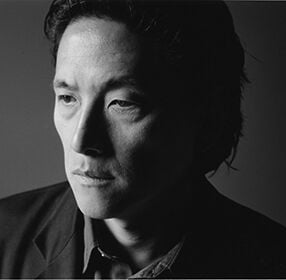Big Clock
When the big clock at the train station stopped,
the leaves kept falling,
the trains kept running,
my mother’s hair kept growing longer and blacker,
and my father’s body kept filling up with time.
I can’t see the year on the station’s calendar.
We slept under the stopped hands of the clock
until morning, when a man entered carrying a ladder.
He climbed up to the clock’s face and opened it with a key.
No one but he knew what he saw.
Below him, the mortal faces went on passing
toward all compass points.
People went on crossing borders,
buying tickets in one time zone and setting foot in another.
Crossing thresholds: sleep to waking and back,
waiting room to moving train and back,
war zone to safe zone and back.
Crossing between gain and loss:
learning new words for the world and the things in it.
Forgetting old words for the heart and the things in it.
And collecting words in a different language
for those three primary colors:
staying, leaving, and returning.
And only the man at the top of the ladder
understood what he saw behind the face
which was neither smiling nor frowning.
And my father’s body went on filling up with death
until it reached the highest etched mark
of his eyes and spilled into mine.
And my mother’s hair goes on
never reaching the earth.
Copyright © 2021 by Li-Young Lee. Originally published in Poem-a-Day on December 8, 2021, by the Academy of American Poets.
“This poem is an attempt, I suppose, to understand time—the nature of time—and it seems to me that each of these stanzas is a figure of time on the one hand, and on the other hand a figure for eternity. I’m not sure if I’ve successfully communicated that, and I don’t mean in terms of subject matter or narrative, but in terms of what the language might inspire in the reader: the images, the ideas, but even more than the images and ideas (which are all in the head) something at a cellular level of understanding, something at a logic beyond our diurnal logic. This poem, in a way, is a very big failure, and it fails on many levels. I think what every great poem has to do is solve many problems, and these problems are problems that have plagued human beings, I want to say, since the beginning of time, but is that true, or did something change with the advent of the written word? I don’t know. Maybe I should start over.”
—Li-Young Lee

